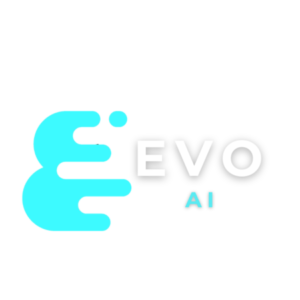
Salesforce introduces xLAM-1B ‘Tiny Giant’ AI Model
Introduction
Salesforce has introduced a groundbreaking AI model, xLAM-1B, also known as the “Tiny Giant.” Despite its modest size of 1 billion parameters, this model surpasses much larger counterparts in function-calling tasks, redefining the landscape of AI development and application.
Features
- Compact Size: The xLAM-1B model contains just 1 billion parameters, making it significantly smaller than many contemporary models.
- High Performance: Outperforms larger models such as OpenAI’s GPT-3.5-Turbo and Anthropic’s Claude-3 Haiku in function-calling tasks.
- Efficient Data Curation: Utilizes the APIGen pipeline to generate high-quality, diverse datasets, crucial for training effective AI models.
Benefits
- On-Device AI Applications: The compact size allows for powerful AI capabilities directly on devices, reducing dependency on cloud infrastructure.
- Cost-Effective: Lower computational requirements make it more accessible for smaller companies and developers.
- Enhanced Privacy: On-device processing addresses privacy concerns associated with cloud-based AI.
- Reduced Carbon Footprint: Smaller models consume less energy, contributing to a more sustainable AI development approach.
Technical Details
- APIGen Pipeline: Generates 60,000 high-quality function-calling examples from 3,673 APIs across 21 categories, ensuring diverse and verifiable training data.
- Three-Stage Verification Process: Involves format checking, function execution, and semantic verification to maintain data integrity.
- Benchmark Performance: Achieves state-of-the-art results on the Berkeley Function-Calling Benchmark, surpassing several models with larger parameter counts.
Summary
Salesforce’s xLAM-1B model demonstrates that smaller AI models can outperform their larger counterparts through efficient data curation and high-quality training datasets. This innovation paves the way for more powerful, responsive, and privacy-preserving on-device AI applications, challenging the conventional approach of scaling models by increasing parameter size. By prioritizing efficiency and data quality, Salesforce has set a new standard in AI development, potentially influencing future research and application in the field.
Other AI News
-
Bitmagic Secures $4M Funding to Revolutionize 3D Game Creation with AI
Bitmagic, a Helsinki-based startup, has successfully raised $4 million in a funding round led by Sisu Game Ventures, with participation from Play Ventures and Crowberry Capital. The funds are earmarked for the development of Bitmagic’s innovative AI platform that allows users to generate 3D games from simple text prompts. This platform leverages advanced generative AI technologies to transform consumer inputs into detailed game environments, characters, and mechanics, significantly lowering the barrier to entry for game development.
The platform’s ability to democratize game creation is poised to revolutionize the industry, making it accessible to a broader audience, including those without technical expertise. By automating the complex aspects of game design, Bitmagic enables more users to bring their creative visions to life. This funding will also support the enhancement of the platform’s AI capabilities and expand its user base, further establishing Bitmagic as a key player in the AI-driven game development sector.
-
Innatera Leads the Charge Beyond GPUs in AI Hardware Innovation
Innatera, a pioneer in neuromorphic computing, is leading a transformative shift in AI hardware, moving beyond traditional GPUs. The company’s technology mimics the brain’s neural networks, enabling more efficient and faster processing for AI applications. This approach significantly reduces energy consumption and enhances performance, particularly for edge computing devices where power efficiency and speed are crucial. By leveraging these neuromorphic chips, Innatera aims to address the limitations of current AI hardware, which relies heavily on power-intensive GPUs and TPUs.
The uprising in AI hardware spearheaded by Innatera represents a quiet revolution in the field. Their chips are designed to handle complex computations with lower latency and higher efficiency compared to conventional hardware. This innovation is set to disrupt the AI hardware market, offering a viable alternative to the dominant GPU-centric infrastructure. As AI applications continue to proliferate across various industries, Innatera’s advancements promise to facilitate more sustainable and scalable AI deployments, especially in areas requiring real-time processing and low power consumption.
-
Startup Leverages AI to Reduce Healthcare’s $1 Trillion Administrative Costs
A new startup is harnessing the power of artificial intelligence to tackle the colossal administrative costs burdening the U.S. healthcare system, which amount to nearly $1 trillion annually. The company’s innovative AI platform aims to streamline administrative processes, reduce inefficiencies, and mitigate the extensive paperwork that healthcare providers and insurers face. By automating routine tasks and optimizing workflows, this technology promises to significantly cut down the time and resources spent on administrative duties.
The AI solution offered by this startup not only targets the reduction of manual labor but also aims to enhance the accuracy and speed of processing healthcare data. This improvement can lead to faster patient care, reduced errors, and ultimately, a more efficient healthcare system. The broader impact of this technology could result in substantial cost savings for healthcare providers and insurers, potentially lowering overall healthcare costs for patients as well. This initiative marks a critical step toward modernizing the healthcare industry’s infrastructure and addressing one of its most pressing financial challenges.
-
Nodafi Secures $3.5M to Revolutionize Facility Operations with AI
Nodafi, a promising startup, has raised $3.5 million in seed funding to establish itself as the “Salesforce for facility operations.” The funding round was led by XYZ Ventures with participation from several angel investors. Nodafi’s AI-driven platform aims to transform how facility management is conducted by automating and optimizing various operational tasks. This includes predictive maintenance, energy management, and resource allocation, providing real-time insights and efficiencies that traditional systems lack.
The platform’s advanced capabilities offer significant cost savings and operational improvements for large facilities, such as hospitals, universities, and corporate campuses. By leveraging AI, Nodafi helps facility managers make data-driven decisions, reduce downtime, and enhance overall productivity. This investment will be used to further develop the platform’s features and expand its market presence, positioning Nodafi as a leader in the facility operations sector.
-
ElevenLabs Introduces Free AI Voice Isolator to Challenge Adobe’s Dominance
ElevenLabs, an AI voice technology startup, has launched a new AI Voice Isolator tool aimed at providing creators with an efficient means to eliminate background noise from audio recordings. This free tool is designed to enhance audio quality in post-production by stripping unwanted ambient sounds, making it ideal for use in podcasts, films, and interviews. Users can upload their audio files to the ElevenLabs platform, where the AI processes the content to deliver crystal-clear speech, simulating studio-quality recordings.
This launch comes as ElevenLabs seeks to compete with established players like Adobe, which also offers tools for improving speech quality in content creation. The AI Voice Isolator from ElevenLabs is accessible for free, with some usage limitations. Users can process up to 10 minutes of audio per month for free, with additional usage available through paid plans starting at $5 per month. The company plans to expand access by providing API integrations in the near future, although specific timelines have not been disclosed. This new tool underscores ElevenLabs’ commitment to democratizing high-quality audio production for creators with varying resources.
-
Meta Unveils Multi-Token Prediction Models for AI Research
Meta has announced the release of its new multi-token prediction models, designed to significantly improve the efficiency and performance of large language models (LLMs). Unlike traditional LLMs that predict the next word in a sequence, Meta’s approach forecasts multiple future words simultaneously. This method, highlighted in an April research paper, promises faster training times and enhanced language understanding.
The models are available for non-commercial research on Hugging Face, starting with code completion tasks. This move is part of Meta’s broader strategy to democratize AI research while maintaining ethical safeguards against misuse.
-
Meta’s AI-Powered 3D Asset Creation Tool Sets New Standard in Speed and Efficiency
Meta has launched an AI-powered tool for creating 3D assets at unprecedented speeds. This new technology is designed to streamline the process of generating high-quality 3D models, significantly reducing the time required from hours to mere minutes. By leveraging advanced AI algorithms, Meta’s tool automates complex tasks involved in 3D asset creation, making it accessible even to those with minimal experience in 3D modeling.
The tool is expected to revolutionize industries reliant on 3D assets, such as gaming, virtual reality, and animation, by providing a faster and more efficient way to produce detailed models. Meta’s innovation aims to democratize 3D content creation, allowing for more creativity and rapid prototyping in various fields. This advancement highlights Meta’s commitment to pushing the boundaries of AI technology and enhancing the capabilities of creators worldwide.
-
Six AI Debates Shaping Enterprise Strategy in 2024: From AGI to ROI
As we move into the latter half of 2024, the artificial intelligence landscape is undergoing a significant transition. The initial fervor surrounding AI’s capabilities, especially following the release of ChatGPT, is being tempered by a more practical approach to implementation. This shift is highlighted by six critical debates that are currently shaping enterprise strategies. These debates cover a range of issues, from the potential of artificial general intelligence (AGI) to the tangible returns on investment (ROI) that enterprises can expect from AI.
One key debate centers on the plateauing of the large language model (LLM) race. Instead of chasing the “best” model, enterprises are now focusing on selecting AI models based on specific use cases, cost-efficiency, and ease of integration. Another major discussion point is the legal and ethical considerations surrounding the use of web content for training AI models. As lawsuits from major publishers against AI companies highlight the contentious nature of this issue, enterprises must carefully vet their AI providers to avoid potential legal pitfalls. Additionally, there is a growing recognition that while generative AI applications are enhancing peripheral functions like customer support and marketing, they are not yet disrupting core business models. This nuanced understanding of AI’s capabilities is driving a more measured and strategic approach to AI adoption in enterprise settings.
-
Waymo Robotaxi Pulled Over by Phoenix Police for Driving in the Wrong Lane
On June 19, 2024, a Waymo autonomous vehicle was pulled over by Phoenix police after driving into an oncoming lane of traffic due to encountering inconsistent construction signage. The incident occurred near Seventh Avenue and Osborn Road, and no passengers were present in the vehicle. The vehicle was blocked from navigating back to the correct lane for about 30 seconds, prompting a police officer to initiate a traffic stop. The Waymo car then moved forward and pulled into a nearby parking lot to clear the intersection. The entire incident lasted approximately one minute, and no citation was issued as there was no human driver to ticket This event raises questions about how traffic laws apply to autonomous vehicles.
Waymo’s vehicles are equipped to detect emergency vehicles and can unlock doors and roll down windows to allow communication with first responders. If necessary, the vehicles can be manually overridden by police officers. This incident is part of broader safety concerns regarding autonomous vehicles, which include recent investigations by the National Highway Traffic Safety Administration (NHTSA) into multiple incidents involving Waymo cars. These concerns highlight the need for updated traffic laws and regulations to address the unique challenges posed by driverless cars.
-
Understanding Tokenization: Why Generative AI Falls Short
Generative AI models, like OpenAI’s GPT-4, rely heavily on a process known as tokenization, where text is broken down into smaller, manageable pieces called tokens. This approach, essential for the functioning of transformer architectures, introduces several limitations and biases. Tokens can range from whole words to individual characters, and their inconsistent handling can lead to various issues, such as incorrect interpretations of meaning and difficulty with certain language structures. For example, the phrase “once upon a time” could be tokenized differently if a trailing space is included, altering the model’s output significantly. Additionally, capital letters are often treated differently, causing further discrepancies in the model’s understanding and generation of text.
Tokenization challenges extend beyond English, impacting the performance of models in other languages. Languages like Chinese, Japanese, Korean, and Thai, which do not use spaces to separate words, are particularly affected. This can lead to higher token counts and increased computational requirements for these languages, making models less efficient and more costly for non-English users. Furthermore, tokenization affects the models’ ability to handle numbers and perform mathematical operations accurately. Models often misinterpret numerical patterns because digits are not consistently tokenized, leading to errors in equations and formulas. Emerging approaches, such as byte-level models like MambaByte, show promise in addressing these issues by processing raw bytes instead of tokens, but they are still in early research stages. To overcome the inherent limitations of tokenization, advancements in model architectures will be crucial.
-
OpenAI Data Breach Highlights Cybersecurity Risks for AI Companies
In July 2024, OpenAI experienced a significant data breach that underscores the growing cybersecurity risks faced by AI companies. The breach was caused by a vulnerability in the Redis open-source library, which is used by OpenAI to store user data. This flaw allowed unauthorized access to users’ chat histories and exposed the payment information of some ChatGPT Plus subscribers, including names, email addresses, and partial credit card details. OpenAI promptly patched the vulnerability and assured users that no full credit card numbers were exposed and that the breach affected less than 1% of its users.
This incident serves as a reminder that AI companies, with their vast repositories of sensitive data, are prime targets for cyberattacks. The breach not only exposed personal data but also highlighted potential exploitation risks associated with AI systems. As AI technologies like ChatGPT continue to integrate into various industries, the need for robust cybersecurity measures becomes more critical. OpenAI’s response included enhancing security protocols and offering a bug bounty program to incentivize the discovery of vulnerabilities. However, the breach illustrates the ongoing challenges and risks inherent in managing AI and its underlying infrastructure.
-
Quantum Rise Secures $15M to Revolutionize AI-Driven Consulting
Quantum Rise, a Chicago-based startup, has raised $15 million in seed funding to advance its AI-driven consulting platform. The funding round, led by prominent investors, aims to support the company’s mission of transforming traditional consulting through advanced AI and automation technologies. Quantum Rise’s platform leverages AI to automate and optimize various consulting tasks, providing businesses with data-driven insights and operational efficiencies.
The company’s innovative approach, termed “Consulting 2.0,” focuses on delivering more precise and actionable recommendations by analyzing vast amounts of data that would be impossible to process manually. This not only enhances decision-making but also significantly reduces the time and costs associated with traditional consulting methods. With clients like dunnhumby, Quantum Rise is set to expand its reach and capabilities, further establishing itself as a leader in the AI-driven consulting market. The fresh capital will be used to enhance the platform’s features, expand the team, and scale operations to meet growing demand.
-
Cloudflare Introduces Advanced AI Bot Detection Tool to Safeguard Website Data
Cloudflare has unveiled a new tool designed to combat unauthorized AI bots that scrape data from websites. Leveraging machine learning and global signals from its extensive network, which handles over 57 million requests per second, the tool can detect and block AI bots that mimic human behavior and bypass traditional defenses like robots.txt. This innovative solution addresses a significant issue, as many bots ignore these rules and continue scraping data without permission, posing risks to data integrity and security.
The motivation behind this development is to provide website owners with a robust defense mechanism against AI-driven data theft. By analyzing bot and crawler activity, Cloudflare’s tool can accurately flag and block evasive bots, ensuring that website content remains secure. This tool is offered for free, making it accessible to a wide range of users and helping to maintain the integrity of web data against increasingly sophisticated AI bots. This initiative represents a critical step forward in enhancing cybersecurity measures for online platforms.
-
Altrove Leverages AI and Lab Automation to Innovate Material Science
Altrove, a French deep-tech startup, is pioneering the use of AI models and lab automation to accelerate the development of new materials. The company has raised €3.7 million (approximately $4 million) to support its innovative approach, which integrates advanced AI techniques with automated laboratory processes. This combination allows for rapid experimentation and analysis, significantly reducing the time and cost associated with traditional materials research. By leveraging AI, Altrove can predict and create new, more stable materials at a pace previously unattainable, aiming to revolutionize industries reliant on advanced materials, such as aerospace, automotive, and electronics.
The startup’s approach addresses a critical need in the materials science sector, where the discovery and development of new materials can be a lengthy and resource-intensive process. By automating routine lab tasks and utilizing AI for complex data analysis, Altrove enhances the efficiency and accuracy of materials research. This method not only accelerates the innovation cycle but also opens up new possibilities for creating materials with unique properties tailored to specific industrial applications. Altrove’s advancements in AI-driven material science exemplify the transformative potential of integrating cutting-edge technology with traditional scientific disciplines.
-
Google’s Environmental Report Overlooks AI’s Significant Energy Consumption
Google’s 2024 Environmental Report, a comprehensive 80-page document, outlines the company’s various efforts to mitigate its environmental impact. The report details initiatives such as water replenishment programs and the application of AI to optimize climate-related tasks, like predicting floods and creating efficient transport routes. However, a critical omission is the report’s failure to address the substantial energy consumption of AI operations. Despite AI’s increasing integration into Google’s services, the report provides no specific data on the energy costs associated with AI workloads, a glaring oversight considering the growing environmental concerns tied to AI technology.
The omission is particularly notable given the rise in Google’s greenhouse gas emissions, which increased by 13% from the previous year and 48% since 2019, primarily due to heightened data center energy consumption and supply chain emissions. Google’s vague language around AI’s future energy impact—describing it as “complex and evolving”—suggests an intentional downplaying of the issue. This lack of transparency raises questions about the actual environmental cost of AI advancements and Google’s commitment to its 2030 net-zero emissions goal.
-
Suno’s AI Music App Revolutionizes Music Creation with iOS Launch
Suno, an AI-driven music creation startup, has launched its new iOS app, designed to democratize music production by putting a virtual studio in users’ pockets. This app allows users to generate complete musical compositions, including vocals, instrumentation, and arrangements, simply by inputting text prompts. Trained on a wide array of musical styles and genres, Suno’s AI model can produce high-quality songs in minutes, making music creation accessible to everyone, from seasoned artists to novices.
The release of this app signifies a significant milestone in the field of AI-generated music, potentially transforming how music is composed and produced. Suno’s CEO, Mikey Shulman, highlighted the app’s impact on self-expression and creativity, noting that over twelve million people have already used Suno for various purposes, including teaching and personal enjoyment. However, this innovation comes amidst legal challenges, as major record labels have filed lawsuits alleging copyright infringement in the training of Suno’s AI models. The outcome of these legal battles could set important precedents for the AI music industry.
-
Meta to Integrate Generative AI into Metaverse Games
Meta is set to enhance its metaverse strategy by integrating generative AI into its VR, AR, and mixed reality games. This initiative aims to breathe new life into Meta’s virtual environments by using AI to create more dynamic and responsive game experiences. Generative AI will enable real-time content generation, offering personalized and immersive interactions for users. This move comes as Meta seeks to bolster engagement and innovation within its metaverse offerings, which have seen fluctuating interest since their initial launch.
By leveraging generative AI, Meta plans to streamline the creation of game elements, potentially reducing development time and costs while improving the quality and variety of content. This technology can dynamically adjust game scenarios, creating unique experiences tailored to individual players. Meta’s focus on integrating AI into its metaverse underscores the company’s commitment to advancing digital interactivity and enhancing user engagement through cutting-edge technology.
-
Figma Disables AI Design Feature After Copying Apple’s Weather App
Figma has temporarily disabled its AI-powered “Make Design” feature after it was found to be generating app designs that closely mimicked Apple’s Weather app. The issue came to light when Andy Allen, CEO of Not Boring Software, reported that the AI consistently produced designs nearly identical to Apple’s app every time he requested a weather app layout. This raised concerns about the AI’s training data and potential copyright infringements. Figma’s CEO, Dylan Field, responded by stating that the AI was not trained on existing app designs but acknowledged problems in the underlying design systems. He announced the feature’s suspension until a thorough quality assurance review could be completed.
The Make Design feature was intended to simplify the design process by using generative AI to create app layouts based on text prompts. However, the tool’s tendency to replicate existing designs, especially from prominent apps like Apple’s Weather, highlighted significant flaws in its implementation. Figma plans to address these issues and ensure that future iterations of the tool provide genuinely original and creative outputs. This incident underscores the challenges and risks associated with deploying generative AI in creative fields, where originality and intellectual property are critical concerns.
-
Anthropic Launches Initiative to Fund New AI Benchmarks
Anthropic, an AI research startup, has announced a significant new program aimed at funding the development of advanced AI benchmarks. This initiative is designed to address the limitations of current AI evaluation methods, which often fail to adequately measure the performance and societal impact of AI models. Anthropic’s program will offer grants to third-party organizations capable of creating more comprehensive and safety-focused benchmarks. The company aims to elevate the entire field of AI safety by supporting the development of tools that can better assess AI capabilities in various contexts, including security, bias mitigation, and multilingual interactions.
The initiative responds to criticisms that existing benchmarks, such as MLPerf, are too narrow in scope and do not reflect real-world applications of AI systems. By encouraging the creation of benchmarks that can evaluate an AI model’s potential for harmful behavior or its ability to assist in scientific research, Anthropic hopes to foster a more reliable and ethical AI landscape. The company has committed to investing in the most promising projects and providing opportunities for researchers to collaborate with its in-house experts. This program represents a proactive step towards ensuring that AI technologies are developed and deployed responsibly, with a strong emphasis on safety and societal benefit.
-
Qdrant Enhances Cost Efficiency of Retrieval-Augmented Generation with Advanced Vector Database Algorithm
Qdrant, a company specializing in vector databases, has introduced a new search algorithm, BM42, to optimize Retrieval-Augmented Generation (RAG) systems. This algorithm aims to improve the efficiency and cost-effectiveness of vector searches, which are crucial for AI applications that require extensive data retrieval. BM42 reduces computational overhead, making high-performance AI more accessible and affordable for various enterprises. By enhancing the scalability and efficiency of RAG systems, Qdrant’s innovation addresses the growing demand for cost-effective AI solutions in data-intensive industries.
The development of BM42 reflects Qdrant’s commitment to advancing AI technology and supporting the needs of businesses that rely on AI for decision-making and operational efficiency. Founded in 2021, Qdrant has quickly positioned itself as a key player in the AI and database market. The company’s focus on improving the technical and economic aspects of AI implementations aligns with broader industry trends towards more sustainable and efficient technology solutions. As AI continues to evolve, innovations like BM42 will play a crucial role in shaping the future of AI-driven applications and services.
About The Author

Bogdan Iancu
Bogdan Iancu is a seasoned entrepreneur and strategic leader with over 25 years of experience in diverse industrial and commercial fields. His passion for AI, Machine Learning, and Generative AI is underpinned by a deep understanding of advanced calculus, enabling him to leverage these technologies to drive innovation and growth. As a Non-Executive Director, Bogdan brings a wealth of experience and a unique perspective to the boardroom, contributing to robust strategic decisions. With a proven track record of assisting clients worldwide, Bogdan is committed to harnessing the power of AI to transform businesses and create sustainable growth in the digital age.











Leave A Comment